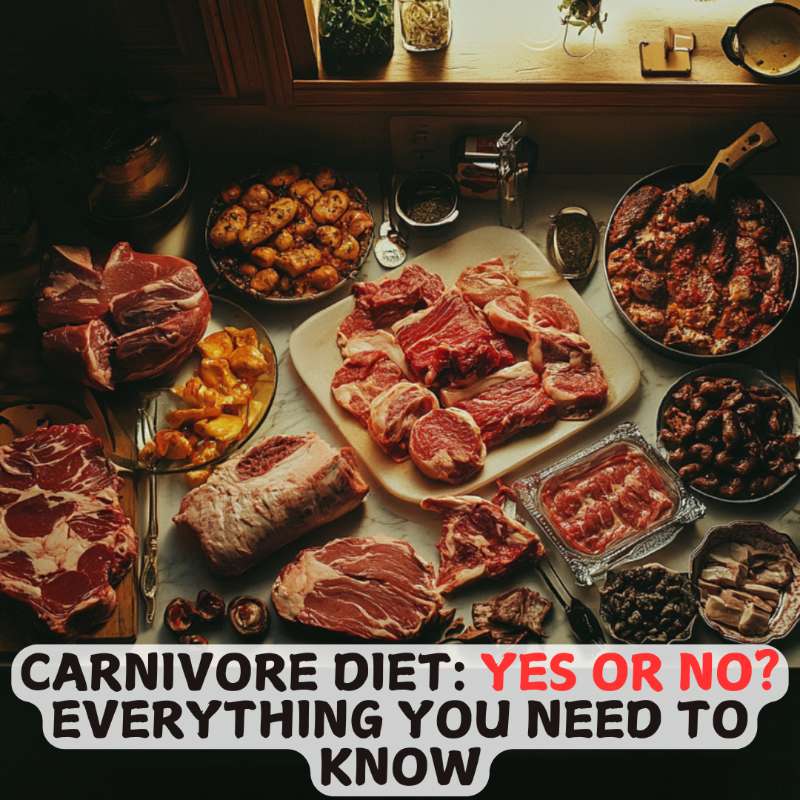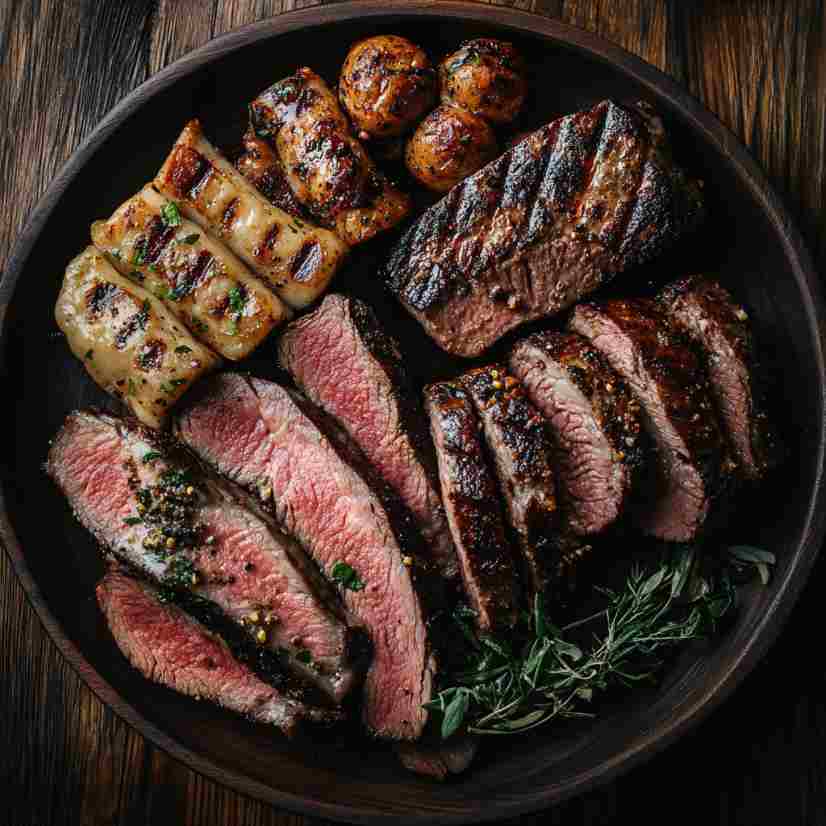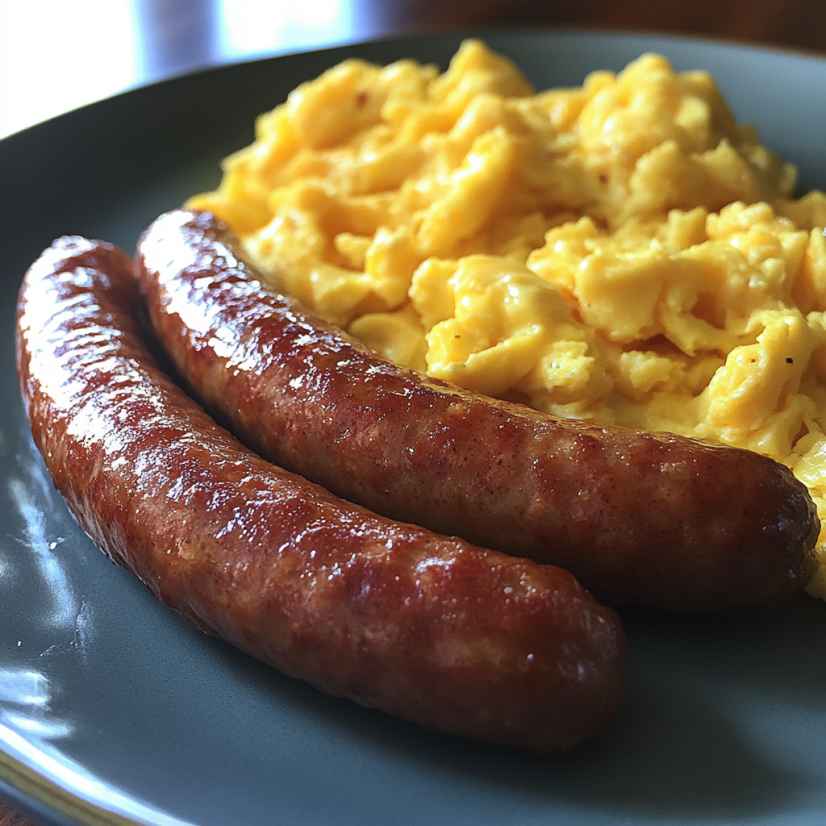Carnivore Diet: Yes or No? Everything You Need to Know

Make sure to like Living Green and Frugally on Facebook, Shop at Amazon to help support my site and explore our PINTEREST BOARDS for innovative ways you can become self-sufficient.
The Carnivore Diet has been making waves in the health and wellness world, and for good reason. Proponents claim it’s the ultimate way to simplify eating, shed unwanted pounds, and even heal chronic conditions. But does it live up to the hype? Or is it just another fleeting dietary trend? In this post, we’ll dive deep into the Carnivore Diet: what it is, the benefits, the drawbacks, and everything in between. By the end, you’ll have a clear understanding of whether this all-meat lifestyle is right for you.
What Is the Carnivore Diet?
At its core, the Carnivore Diet is exactly what it sounds like: a diet based entirely on animal products. Think steaks, burgers (hold the bun), eggs, and fish. Followers of this diet eliminate all plant-based foods, including fruits, vegetables, grains, legumes, and even spices in some extreme cases.
The premise is rooted in the idea that our ancestors thrived on animal-based diets and that modern health issues stem from the introduction of processed foods and carbohydrates. It’s essentially the opposite of veganism, focusing solely on nutrient-dense animal foods.
Benefits of the Carnivore Diet
- Simplicity With no calorie counting or meal prep involving multiple food groups, the Carnivore Diet is refreshingly straightforward. Many find the simplicity liberating.
- Weight Loss By cutting out carbohydrates, the body shifts into ketosis, burning fat for fuel. This often results in quick and sustainable weight loss.
- Improved Mental Clarity Many report fewer brain fog episodes, possibly due to the lack of sugar spikes and crashes.
- Reduced Inflammation Supporters claim the elimination of plant toxins, such as lectins and oxalates, leads to decreased inflammation and relief from autoimmune symptoms.
- Better Gut Health Ironically, while fiber is traditionally considered essential, many Carnivore Diet enthusiasts report improved digestion and less bloating.

Drawbacks of the Carnivore Diet
- Nutrient Deficiency Eliminating entire food groups can lead to deficiencies in essential vitamins and minerals, like vitamin C and potassium, unless carefully managed.
- Social Challenges Eating out or attending social gatherings can be tricky on such a restrictive plan.
- Sustainability The monotony of eating only meat can be challenging long-term for many.
- Potential Health Risks High consumption of red meat and saturated fat has been linked to heart disease in some studies. However, these findings are still debated.
How to Start the Carnivore Diet
- Eliminate All Plant-Based Foods Begin by cutting out fruits, vegetables, grains, and processed foods. Stick to meats, fish, eggs, and animal fats.
- Transition Slowly If you’re currently eating a high-carb diet, consider reducing carbs gradually to avoid the dreaded “keto flu.”
- Stay Hydrated Meat-based diets can be dehydrating, so ensure you’re drinking plenty of water.
- Supplement if Necessary Consider adding electrolytes or supplements like magnesium to avoid imbalances.
Tips for Success
- Choose Quality Cuts: Grass-fed and pasture-raised meats are richer in nutrients and healthier fats.
- Incorporate Organ Meats: These are nutritional powerhouses and can help prevent deficiencies.
- Listen to Your Body: Pay attention to how you feel and adjust accordingly.
- Keep it Varied: Rotate different meats and cuts to prevent boredom.
A Week-Long Carnivore Diet Meal Plan
Here’s a sample meal plan to give you an idea of what a week on the Carnivore Diet might look like:
Day 1
- Breakfast: Scrambled eggs cooked in butter with bacon
- Lunch: Grilled ribeye steak
- Dinner: Pan-seared salmon with a side of bone broth
Day 2
- Breakfast: Omelette with shredded cheddar cheese
- Lunch: Roast chicken thighs
- Dinner: Ground beef patties topped with melted butter
Day 3
- Breakfast: Hard-boiled eggs and pork belly
- Lunch: Lamb chops
- Dinner: Grilled swordfish with a small portion of liver
Day 4
- Breakfast: Sunny-side-up eggs cooked in ghee
- Lunch: Roast duck breast
- Dinner: Braised short ribs
Day 5
- Breakfast: Beef sausage and scrambled eggs
- Lunch: Grilled venison steak
- Dinner: Pan-fried pork chops
Day 6
- Breakfast: Smoked salmon and cream cheese (if dairy is allowed)
- Lunch: Turkey drumsticks
- Dinner: Beef brisket
Day 7
- Breakfast: Fried eggs and Canadian bacon
- Lunch: Grilled bison burger (no bun)
- Dinner: Ribeye steak with bone marrow

Common Questions About the Carnivore Diet
- Can I eat dairy on the Carnivore Diet?
- Some versions allow dairy, but it’s often recommended to stick to low-lactose options like butter and hard cheeses.
- Is coffee allowed?
- Purists say no, as coffee is plant-based, but many followers include it as a personal choice.
- What about seasoning?
- Basic salt is widely accepted, but some avoid herbs and spices.
- Will I get scurvy without fruits and vegetables?
- Fresh meat contains trace amounts of vitamin C, which may prevent scurvy. However, this is a point of contention among experts.
- Is this diet safe long-term?
- Research is limited. While some thrive on the Carnivore Diet, it’s essential to monitor your health closely and consult with a healthcare provider.
Is the Carnivore Diet Right for You?
The Carnivore Diet is not one-size-fits-all. It can be a powerful tool for weight loss, simplifying eating, or addressing specific health concerns. However, its restrictive nature and potential risks mean it’s not for everyone. If you’re curious, consider trying it for a short period, like 30 days, to see how your body responds.
Ultimately, the best diet is one that you can sustain, enjoy, and that supports your health goals. Whether you decide to dive into the Carnivore lifestyle or take a more balanced approach, the key is finding what works for you.
Final Thoughts
The Carnivore Diet is a fascinating and controversial approach to eating. While it’s not without its challenges, it’s helped many transform their health. If you’re intrigued, do your research, experiment cautiously, and always prioritize your well-being. After all, the best diet is the one that makes you feel your best.